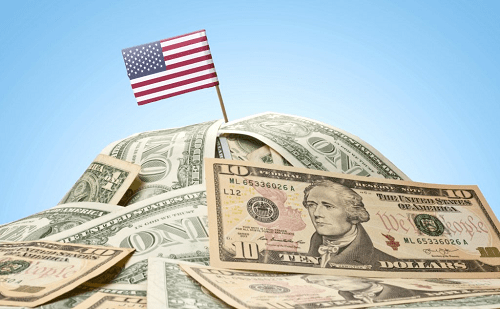
11.13.21 – Louisiana Illuminator
Voters weighed in on four constitutional amendments about taxes and spending Saturday
In a low-turnout election Saturday, Louisiana voters approved an overhaul of Louisiana’s income tax rates and credits that the local business community has sought for years.
Constitutional amendment #2 will lower state income tax rates in exchange for lifting a frequently-used tax deduction for paid federal income taxes. It will also reduce the state’s corporate franchise tax and sets Louisiana up for further tax cuts.
Overall, the amendment will result in a slight tax collection deduction — $27.3 million out of a $40-plus billion budget — that almost entirely benefits the state’s corporate community.
Low-and-moderate personal income tax filers who don’t take advantage of excess itemized deductions are likely to see a modest tax cut. Wealthy personal income-tax filers and people who take advantage of excess itemized deductions will mostly likely see their state tax bills go up.
The amendment will also make it much easier for the Louisiana Legislature to cut income and corporate franchise taxes in the future. The amendment removes the public’s ability to block the elimination of tax cuts in future years. It will require automatic tax cuts for individuals and corporations if the state reaches certain revenue benchmarks.
Businesses and organizations that lobby for permanent tax cuts — such as Americans for Prosperity and the Pelican Institute — ran campaigns urging voters to support the amendment. Groups who advocate for low-and-moderate income workers — like the Louisiana Budget Project and Power Coalition — ran campaigns against the amendment.
But the measure had bipartisan support headed into the election. Gov. John Bel Edwards, a Democrat, supported the amendment. Senate President Page Cortez, R-Lafayette, set up a political action committee (PAC) to pay for an advertising push to support the amendment.
Louisiana residents voted down the three other constitutional amendments on the ballot. Here are the details:
Constitutional Amendment #1 – Consolidating sales tax collections – REJECTED
This amendment would have shifted control of local government sales tax collections from local government entities to a state government entity.
Currently, local governments — everyone from sheriffs to school boards — are in charge of collecting local sales taxes, while the state collects state and online sales taxes. In most other states, all sales tax collections are centralized.
This amendment would have set up a central state commission to determine how to shift local sales tax collections to the state level. It will could have staved off lawsuits about Louisiana’s existing sales tax collections.
House Speaker Clay Schexnayder, R-Gonzales, was the sponsor of the legislation to put this measure on the ballot. Schexnayder, one of the most powerful Republicans in state government, pushed hard for it to pass in the days leading up to the election.
Constitutional Amendment #3: Levee district taxes — REJECTED
This amendment could have allowed the following levee districts to raise local taxes: Chenier Plain Coastal Restoration and Protection Authority, Iberia Parish Levee, Hurricane and Conservation District, Squirrel Run Levee and Drainage District, St. Tammany Levee Drainage and Conservation District and Tangipahoa Levee District.
Constitutional Amendment #4: Elected officials get access to funds — REJECTED
During a state budget downturn, the governor and legislative leaders can shift up to 5 percent of the money found in dedicated state funds to help cover a financial shortfall elsewhere. This amendment would have allowed the governor and state lawmakers to draw down as much as 10 percent of each fund during a financial crisis.
There are hundreds of such funds and they support a variety of state functions, from education initiatives to hunting and fishing enforcement. But they aren’t supposed to be used for purposes other than the ones to which they are dedicated. The amendment would have allowed more of their money to be shifted to other priorities during tough times.
By freeing up more money, Louisiana may be able to avoid heavy cuts to health care services and higher education during budget crises. Over the past several years, these two functions have had to absorb most of the state government reductions because the governor and lawmakers had little other money available to them for cutting. This amendment could have helped alleviate that problem.
